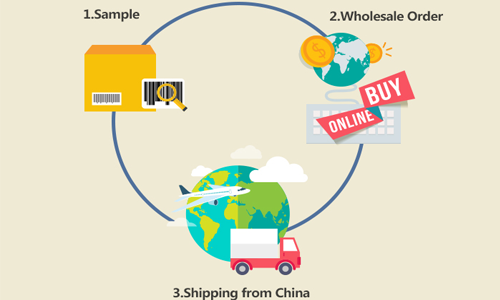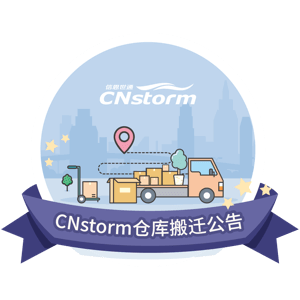Tags :
e-commerce order fulfillment service
e-commerce order fulfillment service
Are you eager to tap into the vast opportunities offered by Alibaba for your sourcing needs? Ease your concerns with our comprehensive guide to Alibaba purchasing
Alibaba is a global e-commerce and technology conglomerate based in China. Founded by Jack Ma in 1999, Alibaba Group has grown to become one of the world's largest and most influential e-commerce companies. The company operates various online platforms that facilitate business-to-business (B2B), business-to-consumer (B2C), and consumer-to-consumer (C2C) commerce.
How Alibaba Works?
Product Listings: Sellers, including manufacturers and retailers, list their products on Alibaba's platforms. These listings include detailed product information, images, and pricing.
Search and Discovery: Buyers, ranging from individual consumers to businesses, use the platform to search for products. They can discover items through search, recommendations, or by browsing specific categories.
Communication and Negotiation: Alibaba facilitates communication between buyers and sellers. Buyers can inquire about products, negotiate prices, and discuss terms directly with sellers.
Transaction and Payment: Once a buyer and seller agree on the terms, the transaction is processed. Alibaba provides secure payment options, including Alipay, to facilitate smooth and trustworthy financial transactions.
Shipping and Logistics: Sellers arrange for the shipment of products, whether through their own logistics or third-party services. Alibaba also offers a range of logistics solutions to support international shipping.
Customer Reviews and Ratings: Both buyers and sellers can leave reviews and ratings based on their experiences. This helps build trust within the Alibaba community and informs future transactions.
Escrow Services: Alibaba uses an escrow system for certain transactions, holding payment until the buyer receives and approves the products. This adds an extra layer of security for both parties.
Alibaba's ecosystem is vast and diverse, catering to a broad spectrum of users. Whether you're a business looking to source products globally or a consumer seeking a wide array of goods, Alibaba provides a platform for transactions, communication, and commerce on a massive scale.
Why import goods from China’s Alibaba?
Alibaba hosts a vast and diverse range of products, spanning various industries and categories. This diversity allows businesses to find and source a wide array of products to meet their specific needs.
Many suppliers on Alibaba offer products at competitive prices due to the scale of manufacturing and the competitiveness of the Chinese market. This can be particularly advantageous for businesses seeking cost-effective sourcing solutions.
It connects businesses directly with manufacturers in China. This direct access can eliminate the need for intermediaries, reducing costs and allowing for clearer communication between the buyer and the manufacturer.
The platform includes features such as supplier assessments, certifications, and transaction histories, helping businesses make more informed decisions when choosing suppliers.
Alibaba often works with logistics partners to support international shipping. This can make the process of getting products from China to other parts of the world more streamlined and efficient.
That’s why you need to import goods from China’s Alibaba.
Importing from Alibaba through a Chinese purchasing agent involves several steps. A purchasing agent acts as an intermediary between you and the suppliers on Alibaba, facilitating the purchasing process, negotiating terms, and ensuring the smooth importation of goods.
7 tips to help you effectively source products from Alibaba
Before diving in, thoroughly research the products you want to source. Understand market demand, trends, and potential suppliers. This will help you make informed decisions.
Look for suppliers with a good track record. Check their Alibaba profiles for years in operation, transaction history, and customer feedback. Use Alibaba's verification services and look for Gold Suppliers, which indicates a higher level of trustworthiness.

Establish clear and open communication with potential suppliers. Ask questions about product details, manufacturing processes, and any customization options. Responsive and transparent communication is a positive sign.
Before placing a large order, request samples to assess product quality. This step is crucial to ensure that the products meet your specifications and quality standards.
Negotiate terms such as price, minimum order quantity (MOQ), payment terms, and shipping costs. Be prepared to negotiate, and don't hesitate to walk away if terms are not favorable.
Alibaba's Trade Assurance offers payment protection and product quality assurance. It acts as a safeguard in case the supplier fails to meet the terms of the agreement.
If feasible, consider visiting the supplier's factory. This provides firsthand insights into their production capabilities, quality control processes, and overall business operations.
Process of importing from Alibaba purchasing agent
Clearly Requirements
Clearly define the products you want to import, including specifications, quantity, quality standards, and any customization requirements.
Find a Reliable Alibaba Purchasing Agent
Research and choose a reputable Chinese Alibaba purchasing agent. Look for agents with a proven track record, positive client reviews, and experience in your industry.
Communicate Your Needs to the Agent
Provide detailed information about the products you want to import, your budget, and any specific requirements. Clear communication is crucial for the agent to understand your expectations.
Agent Identifies Suitable Suppliers on Alibaba
The purchasing agent uses their knowledge and experience to identify potential suppliers on Alibaba that meet your criteria. They may also leverage their existing relationships with suppliers.
Negotiate Terms and Prices
The agent negotiates with suppliers on your behalf to secure favorable terms, including pricing, payment terms, and any other conditions. They may use their knowledge of the local market to ensure you get the best deal.
Quality Control and Inspection
The agent may conduct quality control inspections to ensure that the products meet your specifications and quality standards. This step is crucial to avoid issues with substandard goods.
Handle Logistics and Shipping
The purchasing agent manages the logistics of transporting the goods from the supplier to your destination. This includes coordinating shipping, customs clearance, and any necessary documentation.
Payment Handling
The agent may handle payments to suppliers on your behalf. This can provide an added layer of security and help ensure that payments are made according to agreed-upon terms.
Receive and Inspect Goods
Once the goods arrive, inspect them to ensure they match the specifications and quality agreed upon. The purchasing agent may assist in resolving any issues with the supplier if discrepancies are found.
Customs Clearance and Import Duties
The agent assists with customs clearance procedures, ensuring that all necessary documentation is provided and import duties are paid.
Delivery to Your Location
The agent coordinates the final delivery of the goods to your specified location.
It's important to choose a purchasing agent carefully, considering their expertise, reputation, and the fees they charge for their services. Additionally, establish clear communication channels and expectations throughout the process to ensure a smooth importing experience.
What are the payment methods for importing from China Alibaba purchasing agent?
Telegraphic transfer (T/T): This is a common payment method for international trade. The buyer wires the payment to the seller through the bank. On the Alibaba platform, you can choose to pay via bank transfer.
Letter of Credit (L/C): A letter of credit is a conditional payment commitment issued by a bank. The buyer issues a letter of credit through the bank, and the seller delivers the goods and submits the documents in accordance with the requirements of the letter of credit. The payment is made after the bank has verified that there are no errors. On the Alibaba platform, you can choose to pay via letter of credit.
Alipay: Alipay is an electronic payment method in China through which buyers can pay goods to sellers. On the Alibaba platform, you can choose to pay via Alipay.
Cash on delivery: Cash on delivery is a method in which the buyer pays for the goods after they arrive at the destination. On the Alibaba platform, you can choose to pay via cash on delivery.
Please note that specific payment methods may vary depending on the supplier's requirements and transaction terms. When choosing a payment method, it is recommended to fully communicate with the supplier to ensure that both parties have a consistent understanding and acceptance of the payment method. At the same time, you should also consider the risks and costs of different payment methods and choose the payment method that best suits you.
There should also be options such as PayPal or escrow, with a money-back guarantee if the quality is not up to par and the product has to be returned. These two options are more secure than wire transfer or using Western Union (a one-way payment). Buyers should feel safe working with suppliers, and the many payment options indicate the supplier is trustworthy.




 CN - Shenzhen Warehouse
CN - Shenzhen Warehouse








 Announcement of 2019 Spring Festival Holiday
Announcement of 2019 Spring Festival Holiday